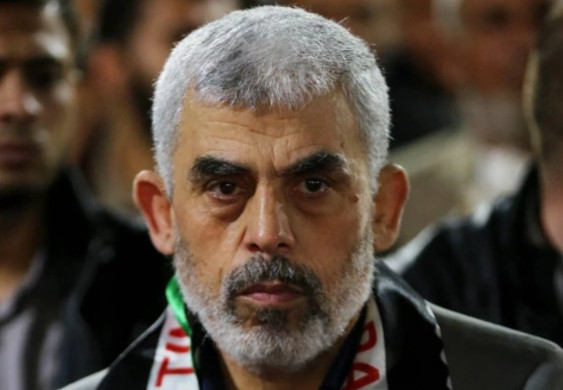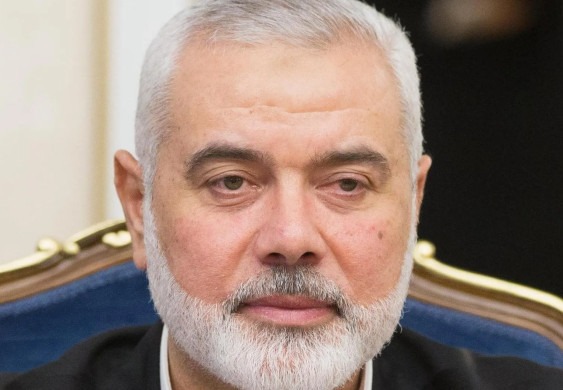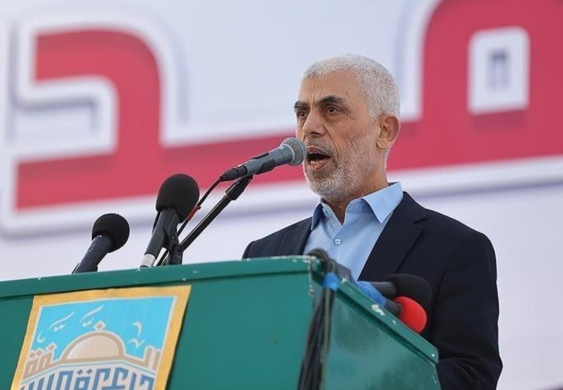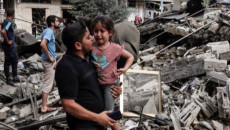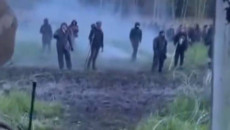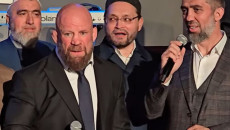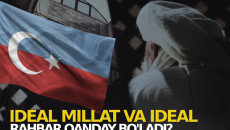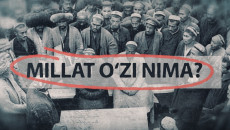"Cloves and Thorns"
Dear readers! The bloody war taking place in the land of Palestine has left a deep wound in all of our hearts. As this wound hurts our body and we feel restless as if we have a fever, we can only imagine how difficult it is for the innocent Palestinians. But if you read the story of Yahya Sinvar, a late commander, a brave warrior, a loyal son of his homeland and nation, called "Carnation and Thorn", your imagination will expand even more. Starting today, we will publish the translation of this work little by little. Translator - Ma'mur Mukhtar. Prologue and the first season.
Introduction
Although all events are true, this is not the story of me or any particular person. Every event or set of events in this book is about one Palestinian or another. In order to comply with literary conventions, some topics were focused around specific individuals. Other than that, everything I have experienced, most of them are the truths I have heard from the mouths of people who have lived in the beloved Palestine for ten years, their neighbors and their families.
I dedicate this book to every person whose heart is attached to the atmosphere of "Isra and Me'oraj".
Yahya Ibrahim Sinvar
"Bir Sab" prison
2004 year.
The first season
The winter of 1967 was very hard. As if it didn't want to go away, it would not let the warm sun of spring shine with its dark clouds, but would drive it away with its cold wind. Drops of icy rain falling from the sky were drowning the beautiful tents of the migrants in Gaza. The overflowing flood drove people out of their small houses located below the main street that passed nearby, causing discomfort in their tents.
The torrential rain of the bitter winter poured into the small yard of our yard, and then flowed into the porch where our family lives. I, my three brothers and my sister were trembling with fear. My sister is still a baby, so I was the most afraid of them. My parents single-handedly collected the beds so that the water that entered our house would not wet the beds. I was hugging my mother's neck tightly, and my nursing sister was in my mother's arms. I woke up several times during the night in the arms of my mother, who did not forget to comfort her even during that terrible night. An aluminum container was placed for the drops that seeped through the hole in the roof of our small house. There was aluminum in front of me, a ceramic pot on the other side, and some kind of pot on the other side. Every time I fell asleep, I woke up to the sound of drops falling on those pots. As the containers filled with water, the dripping drops scattered more and more particles around. My mother would take out the full containers to empty them and empty them.
I remember very well when my seven-year-old brother Muhammad took me by the hand and led me to the Egyptian soldiers on one of the days when the warm sun of spring began to erase the works of winter and take its place. I was five years old then. The Egyptian military loved us very much. One of those soldiers asked our name. We introduced ourselves. After some time, "Hey Muhammad, Ahmed! Come here!" he called. My brother and I ran as usual, bowing our heads to the ground and waiting for him to give us some sweets. The uncle who called us took out a piece of pistachio candy from the pocket of his military uniform and handed it to us. After each of us got our share, we began to eat more and more. Uncle Boyagi patted our shoulders, stroked our heads and said, "Now go home!" said. We ran to our tents.
After that, the bitter winter that reigned for a long time ended. The days began to warm. From the consecutive warm days, I realized that the return of cold winter is still far away. The falling raindrops were no longer a threat. But I could sense a strong anxiety and fear from those around me. My family was even more depressed than that rainy cold night. I could not understand what was happening, but I knew that the situation around was not natural. My mother also left the utensils she used when she passed out in the yard. My father took a hoe from our neighbor and started digging a deep trench in the yard. My twelve-year-old brother Ibrahim helped my father. After digging the trench, my father began to cover it with logs. He was looking for something in the yard. Then he pulled out the door of our kitchen, threw it into the mouth of that ditch and buried it with earth. I could see my brother Ibrahim and my mother climbing out of the hole of that trench that was not yet closed. Gradually, I found the courage to feed from that open hole.
When I looked, it was like a dark underground room. Although I did not understand what was happening, I felt that something bad was about to happen. I could feel that this rain was worse than the cold night.
Now no one would take me by the hand to get sweets and take me to the place where the Egyptian soldiers were stationed, on the contrary, my brothers would repeatedly order us not to go. These things and changes made my little heart grow. When my brothers didn't take me to get sweets, I went to my uncle's son Ibrahim, who is the same age as me, because he also knew the secret of getting sweets from the military. I wanted to tell him to go together. When I opened the door, my uncle was adjusting his rifle. I felt like I could do the same. That rifle caught my eye and I was hooked on it for a while.
My uncle looked at me, called me to him, put a gun in my hand, and then started talking to me that I didn't understand. Ke y in stroked my head and said "Go , my son, go now" and took me out of the room. Then, my cousin Ibrahim and I went to the place where the Egyptian military was stationed near us. When we got there, everything changed completely. We were not greeted by the military uncle who always greeted us with a smile. Whenever we went, they greeted us with laughter. But this time, on the contrary, we were told "Go, go to your mother!" he shouted loudly. Nothing was natural. I couldn't understand these changes. We did not get our share of sweets and turned back in fear. The next day, my mother took some sheets and started laying them in the trench. He also stored two or three containers of water and some food. He took us out and sat us down. After some time, my mother-in-law and her sons Ibrahim and Hasan joined us. I did not know the reason why we gathered in this place. We left the wide street and yard and went down here. Every time I tried to get out and reach for that hole, my mother resisted and gave me bread and some olives to wash it. Thus, the sun also set , and the darkness grew stronger. The fear in the trench was now doubled. When we tried to go outside, my mother and my daughter-in-law strongly resisted, and when we cried, "My children, there is a war outside. Do you know the war? The war!" they used to say. I didn't know what war was. Then I realized that war is a scary, dark thing.
To be continued..
Translated by Ma'mur Mukhtar



